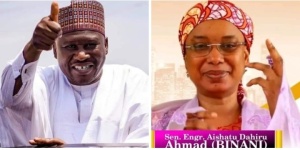In his final argument challenging Bola Tinubu’s declaration as President of Nigeria, Peter Obi has posed a critical question before the presidential election petitions tribunal. Obi seeks to determine whether Tinubu can sustain an argument that he didn’t personally suffer economic sanctions when he forfeited $460,000 to the United States in the 1990s. The tribunal is currently receiving final arguments from parties in the lawsuit ahead of its impending judgment.
Obi’s contention is that Tinubu’s forfeiture of funds in the past should disqualify him from standing for the presidential election. He cites Section 137 (1) (d) of the Nigerian Constitution, which disqualifies a person from running for president if they have been previously placed under a fine by any court or tribunal.
Tinubu’s lawyers admit that their client was the subject of the U.S. judgment, but they argue that the forfeiture was a civil procedure and should not be considered a fine as prohibited by the Nigerian Constitution. On the other hand, Obi’s legal team contends that forfeiture in the U.S. equates to a fine or a punitive economic sanction.
They cite Nigerian and U.S. Supreme Court rulings to support their argument. The Nigerian Supreme Court’s definition of forfeiture as a form of punishment for an offense and the U.S. Supreme Court’s acceptance that civil forfeiture can be excessively punitive.
Obi’s lawyers maintain that dictionaries have historically defined forfeiture as a fine, and the 2019 U.S. Supreme Court judgment reaffirms this definition.
While Mr. Tinubu’s lawyers dismiss the argument, asserting that the case of Tyson Timbs was different due to his guilty plea to narcotics business, Mr. Obi seeks to establish that courts in both Nigeria and the U.S. accept the definition of forfeiture as a fine.
These legal arguments will be crucial in the tribunal’s final judgment, which will determine the eligibility of Bola Tinubu as Nigeria’s President.










